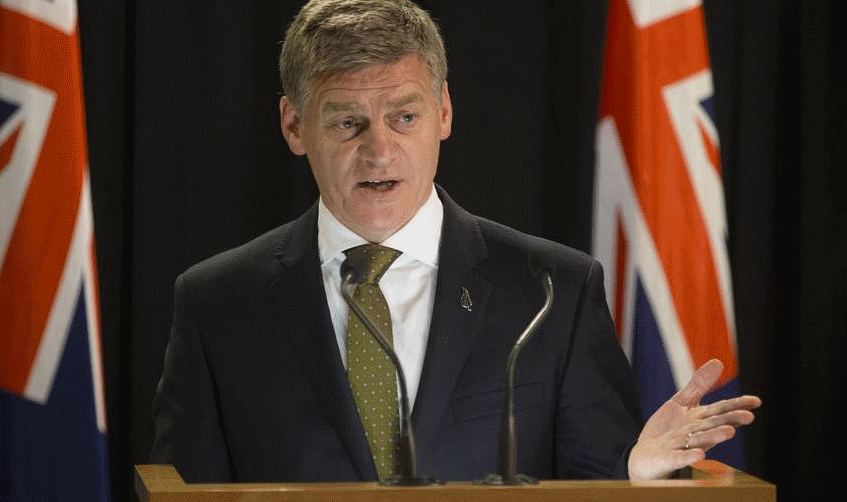
The death of seven people in Auckland as a result of synthetic cannabis use is a police matter and does not warrant Government intervention, Prime Minister Bill English says.
English rejected suggestions that an urgent Government-level response was required this afternoon, instead saying that people needed to avoid illegal substances and show more personal responsibility.
New Zealand Police and Chief Coroner Deborah Marshall issued a public warning on Friday after the death of seven people in a month were linked to synthetic cannabis, an illegal product. Ambulance staff were also reporting up to 20 non-fatal admissions a day.
Speaking at his weekly press conference this afternoon, English said he had asked for advice on any possible responses to the fatalities.
"[The advice] falls into two categories. It is an illegal drug, it has to be policed, and we are not the police force.
"But the most important thing here ... is that people do not take these illegal substances that can kill them.
"That sense of personal responsibility is pretty critical to staying alive. They need to decide they are not going to take these drugs".
It was possible that anti-drug education campaigns could be increased, he said.
"That would be possible. But I would have thought the pictures in the media were pretty educational."
Anything beyond that was a matter for police, English said.
Green Party health spokeswoman Julie-Anne Genter said she was "extremely shocked and upset" at the absence of any Government plan or response to the drug-related deaths and injuries.
She said that in the short term the police should at least create a special unit to deal with the synthetic cannabis issue. Drug-checking facilities should also be made legal and resourced, she said.
In the medium term, Genter said legalising cannabis would create a "safe alternative" and lower the risk of black market-related drug deaths - a move English flatly rejected today.
The National-led Government banned all synthetic drugs in 2014 until they could be proven "low-risk" by a new testing regime.
That regime is now in place, but a Government restriction on testing the products on animals meant that drug manufacturers were unable to prove that their drugs were low-risk and able to go on the market. No products have yet been submitted for testing.
English today ruled out relaxing the ban on animal testing to allow the regime to function, saying that there was significant public and political opposition when the issue was debated.
Associate Health Minister Peter Dunne said on Friday that he has asked officials to report back on any possible alternative approaches which would allow the testing regime to get under way.
Police said today they were continuing their investigation into the synthetic drugs linked to the deaths, which had been referred to the coroner.
They were not considering any special measures such as an amnesty on people caught using the drug. A spokeswoman said that police officers took a case-by-case approach to drug cases, and could exercise discretion if required.
NZ Drug Foundation director Ross Bell said an early warning system for dangerous new substances in New Zealand was overdue.
"There are a whole new lot of brand new chemicals that are being cooked up and made quite available, but being sold as something else.
"This is the new reality we have, because all other countries are dealing with the same kind of problems. We don't know what they are, customs don't know what to look for, they're very easy to smuggle in, police don't know what they're dealing with, health agencies aren't aware of what these things are."
A multi-agency warning system was identified by the Ministry of Health as a priority in 2015.
It would allow police, customs and health officials to better inform the public about particularly harmful drugs, and monitor overseas trends which could occur here.
Dunne said on Friday he expected to have the warning system in place by next year.












